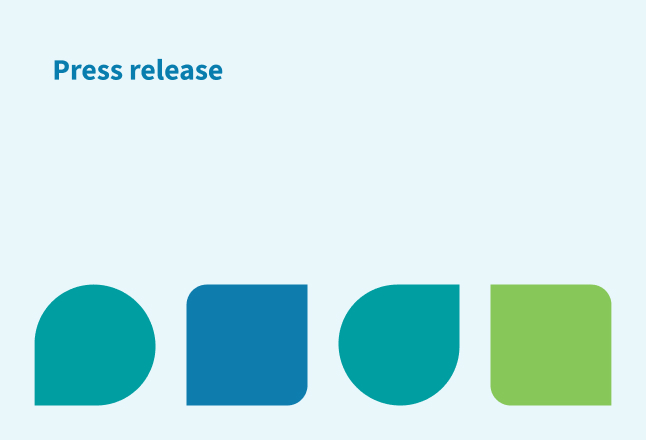Boston - November 10, 2021 - Digital health company Linus Health Inc. announces that its digital clock drawing assessment (DCTclock™) has been named to TIME’s list of the Best Inventions of 2021. Each year, TIME reveals its annual list of inventions that are making the world better, smarter and even a bit more fun. The DCTclock assessment, an FDA Class II medical device, was recognized in the medical category for its ability to provide clinicians, providers, and researchers access to a clear picture of a patient’s brain health for detection of disorders such as Alzheimer’s and Parkinson’s. DCTclock is already in use in medical practices and clinical trials in both the United States and Europe.
Cognitive decline and dementia are a huge threat in the face of an aging population, with disorders such as Alzheimer’s affecting nearly 16 million people in the United States alone. Early detection and diagnosis of cognitive decline are critical for patients with Alzheimer’s disease and other neurodegenerative diseases, as some pathologies associated with dementia can appear years or even decades before symptoms present themselves. The DCTclock was invented to address the invasive and expensive imaging scans used for diagnosis as a less invasive and costly method to enable cognitive screening to be completed in a clinical setting or remotely to improve patient outcomes.
“The Linus team is committed to addressing the urgent need for better cognitive screening tools for the industry. The DCTclock has been proven for both Alzheimer’s and Parkinsons, and we’re proud to be recognized as a best invention by TIME,” said Linus Health CEO, David Bates, PhD. “The DCTclock is already deployed in dozens of countries for pharmaceutical clinical trials and research studies, and now with its availability on a tablet to enable expanded access and ease of use in the clinical setting, we’re looking forward to supporting its growth and adding more assessments like it which will support our mission of revolutionizing brain healthcare.”
Based on AI research at MIT, the DCTclock was invented to deliver a quick, yet highly sensitive brain vital sign to enable a rapid, widely-accessible, and objective cognitive health picture. Dementia is usually tested with pen-and-paper tests, up to 8 hours of clinical assessments, and PET scans which can cost $6,000. By contrast, the DCTclock assessment takes just three minutes to provide a comprehensive picture of an individual’s brain health. With the assessment, primary care providers, pharmaceutical companies, and research companies can conduct widespread and effective cognitive screening at a low cost to identify eligibility for trials, new treatment options, or the need for a specialized care plan.
Rather than simply digitizing pen-and-paper clock drawing tests of the past, the DCTclock captures hundreds of drawing process features and assesses the participant’s cognitive state including memory, language processing, spatial planning, fine motor, and executive function. These hundreds of digital biomarkers including subtle drawing behaviors are analyzed with artificial intelligence to provide greater result sensitivity. DCTclock scores are highly associated with the presence of amyloid plaque that would otherwise require PET scans for screening, enabling advanced research and unprecedented preventive treatments.
The original clock drawing test was invented by the late Dr. Edith Kaplan at the Boston Veterans Affairs Hospital (Boston VA). The digitized version was invented by Dr. Randall Davis of MIT and Dr. Dana Penney of the Lahey Clinic. The DCTclock algorithm was developed by the inventors and DCT co-founder, William Souillard-Mandar, with intellectual contribution and validation from clinical researchers including Dr. David Libon of Rowan University and Dr. Rod Swenson, who were both Dr. Kaplan’s proteges at the Boston VA. DCTclock is benchmarked against lengthier cognitive tests for Alzheimer’s and Parksinson’s detection, published in Neurology, the Journal of Parkinson’s Disease, and Parkinsonism & Related Disorders.
Learn more at linus.health.
About Linus Health
Linus Health is a digital health company revolutionizing industry understanding of mental and brain health with mobile-based, multimodal testing and monitoring and artificial intelligence analysis. Cognitive tests or those conducted on pen and paper leave critical data out of the picture, the Linus platform combines industry-leading technology, artificial intelligence, and social engagement tools to collect and analyze cognitive and motor function data to provide a patient’s “cognitive footprint.”
Led by an interdisciplinary group of neuroscientists, neurologists, medical practitioners, engineers, and data scientists, Linus Health supports advancement of mental and brain health research, treatment, and care. The company’s multimodal assessments are easily conducted, even outside of clinical settings, to collect a broad range of digital biomarkers from voice and speech patterns, visuospatial memory, dual-tasking ability and fine motor control, as well as movement, balance, and more. By improving mental and brain health testing and access, Linus seeks to make brain health accessible to every patient and give clinicians, caregivers, and researchers the tools to advance detection, care plans, and treatments. Learn more at linus.health.
